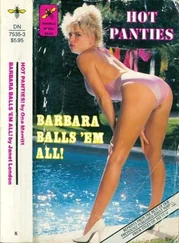The problem with Washington isn't gridlock. It isn't that things aren't getting done. The problem is the corruption of the public spirit. The Permanent Political Class has no sense of urgency to change because, for them, business is good.
We need to break the cycle of crony capitalism, land deals, and insider trading. And we can do it simply by applying the rules that the politicians expect the rest of us to abide by.
As we have seen, disclosure requirements are not sufficient to stop cronyism. What about trusts? Many members of Congress put their assets in so-called blind trusts, and thereby appear to be above suspicion. Yet such trusts don't work either. Despite the name, blind trusts are far too often not, well, blind. And they are not dumb either. Senator Robert Toracelli had a blind trust, and by picking a political acolyte and longtime friend as his trustee, Toracelli made a killing on illegally manipulated stocks. 1Senator Bill Frist had a blind trust where he held, among other things, shares of Hospital Corporation of America, a company started by his father. But that did not prevent the trust from making some well-timed stock sales, which set off an eighteen-month SEC investigation. Frist was cleared of all charges, but the episode highlighted the fact that a blind trust is not always blind. Politicians who have their assets in a blind trust whose trustees seem to show amazing deftness in predicting government actions need for serious scrutiny.
The rules of a blind trust are simple. You must select a trustee (it cannot be a family member) to direct the trust and deal with the investments. You cannot have a conversation with the trustee about the portfolio, and you cannot direct or suggest trades. Of course, what a politician can do is share nonpublic information, the kind that hedge funds pay a lot of money for, and then let the trustee make his own decision about how to react. As law professor Megan Ballard puts it, "The rules for these trusts do not include sufficient incentives to maintain blindness." Indeed, "blind trusts can mislead the public into believing that policymakers are avoiding conflicts, when they may not be doing so." As Ballard points out, the first elected U.S. official to use a blind trust was Lyndon Johnson, who was notorious for using his position to benefit his businesses. LBJ named two business associates and a family friend as his trustees. And he continued on as usual, with his trustees handling specific details. 2
The simple fact is that politicians often select close colleagues, friends, and acolytes to run their blind trusts. Furthermore, once you establish a blind trust, according to the rules of the Senate, you are no longer required to disclose your assets annually, so it creates less transparency than before. Things that politicians are allowed to do in the dark are not always good.
Back in 1995, when legislators were arguing over the Congressional Accountability Act, which would subject Congress to federal antidiscrimination and other workforce protection laws, Senator Charles Grassley of Iowa said: "I hold the strong belief that we, in Congress, are merely representatives of the people. We are not better than the people we represent and we are not, by definition and determination, different from the people we represent. We are, as representative government intends, the people themselves." 3It's time for Grassley's argument to be applied to crony capitalism on both Capitol Hill and in the White House.
Insider Trading
Henry Manne recognized in 1966 that "the federal government is the largest producer of information capable of having a substantial effect on stock-market prices." 4The author of the standard text on insider trading knew Congress was a rich source of privileged information. What do our laws say on the matter?
When it comes to current SEC insider trading laws, there is a spirited debate going on among legal scholars as to whether current laws actually apply to Congress. Many contend that they don't, because our legislators are not fiduciaries (that is, client representatives) and are therefore not obligated to keep secret information secret. Other scholars argue that SEC laws on insider trading do apply to members of Congress. They claim it is illegal under Rule 10b-5 of the Securities Exchange Act, which is a general antifraud provision that prohibits deceptive conduct "in connection with" the purchase or sale of securities. 5
But even if current laws do apply, the political reality is that the SEC is not going to enforce them against Congress. Remember, the SEC is funded by Congress. And SEC commissioners require Senate confirmation. Congress has oversight over the whole operation. Remember what happened when the FBI raided Congressman Jefferson's office? His colleagues threatened to cut funding for the Justice Department. And recall from the introduction how everything from IRS enforcement rates to listings under the Endangered Species Act are directly influenced by congressional power.
In Great Britain and throughout the European Union, it is already a crime to use insider government information for stock trades. Britain's Financial Services Act of 1986 extended the scope of the so-called Insider Dealing Act to explicitly cover all public servants. This included political or government information received "by all royal and civil servants and by all outside individuals receiving information from these servants." In other words, you better not pass the information and you better not trade on that information. This standard, if applied to the United States, would make clear to hedge funds that if they receive information from government employees and trade on it, they too may be liable. 6
In 1989, the European Union deemed that insider trading laws for member states needed to meet a minimum floor. The EU said explicitly that insider trading meant trading on private information obtained "by virtue of the exercise of [one's] employment, profession, or duties." It specifically included "members of the central bank, the press, the parliament, the ministry of economics and of other institutions, committees and bodies who may possess inside information because of their profession or their duties." 7
It would be difficult to apply the European standard here because in the United States there is no statutory definition of insider trading; it has been defined by our courts over time. I'm not one to adopt a law simply because some other country has it, but clearly the British and the Europeans are on to something: sensitive insider information means not just advance warning of a corporate announcement. It can also mean a key piece of legislation that will affect the stock price of a company. And if a legislator trades on this information, or shares it with someone else who trades on this information, he should face possible legal sanctions.
Conflict of Interest
The U.S. Supreme Court recognized decades ago "that an impairment of impartial judgment can occur in even the most well-meaning men when their personal economic interests are affected by the business they transact on behalf of the government." 8All of us, if we are part of any sort of organized commercial enterprise, need to abide by conflict-of-interest laws.
As we've seen, this applies at the local, county, and state levels. Recently a city councilman in Sparks, Nevada, was censured by his state because he cast a vote in favor of a casino project that involved his campaign manager. He sued, claiming that he had a First Amendment right to vote on the matter. The Supreme Court, in a unanimous decision, denied his argument and found that conflict-of-interest laws were constitutional. Justice Antonin Scalia, writing for the court, said that conflict-of-interest rules "have been commonplace for over 200 years." He went on to note that when a public official votes, it "is not personal to the legislator but belongs to the people. The legislator has no personal right to it." 9
Читать дальше











